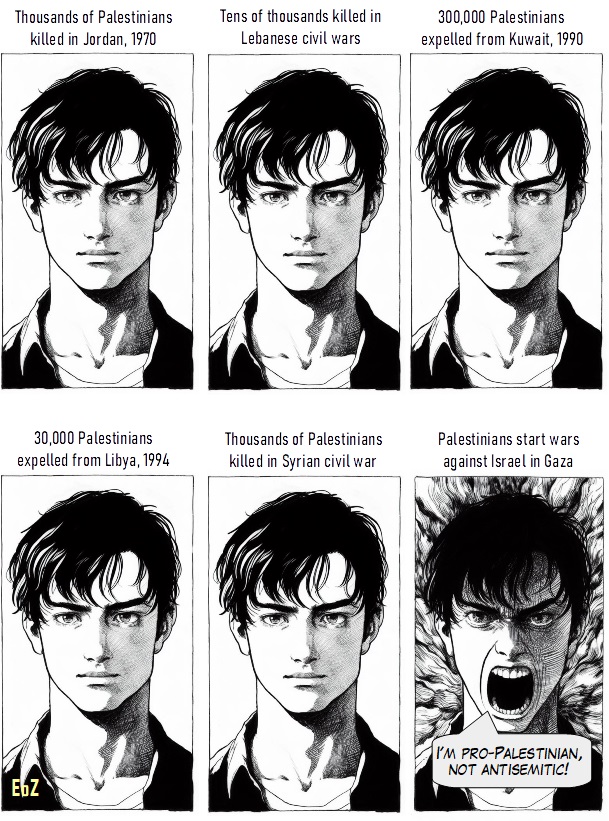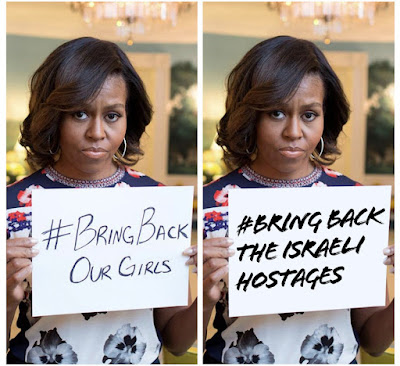The Moral Clarity of a Just War
We are at one of those defining moments in Jewish history when we find ourselves at a moral disconnect with much of the international community.What if Palestinians don't want peace?
A mere month later, the memory of Oct. 7 has faded, absorbed into the "cycle of violence."
No, we patiently explain, the massacre was not in response to anything Israel does but to what Israel is.
And yes, the suffering of innocent Gazans deserves the world's urgent humanitarian attention, but not at the expense of moral clarity about the justness of this war.
But increasingly, we sense that we are talking to ourselves. The West doesn't understand the language we are speaking.
We watch the mass marches against Israel with astonishment. What may well be the most horrific massacre of our time has resulted in the unprecedented popularity of the Palestinian cause.
But with the Hamas massacre, we agree that those who did that to the Jewish people must not be allowed to claim victory.
To leave a genocidal regime on our border would be a betrayal of the founding ethos of Israel as a safe refuge for the Jewish people.
We know that the longer the fighting in Gaza lasts, even our friends will begin to pressure us to relent. We must resist that pressure and not fear the consequences.
A thought has been worming its way uncomfortably through my mind since Oct. 7. What if peace is impossible? What if there is literally no way to reach a lasting accord? What if one side will settle for nothing less than the destruction of the other?Jonathan Schachter: Antisemitism on the left demands of Biden another Charlottesville moment
My doubts began in the immediate aftermath of the atrocity as I watched the reaction of some Palestinians and some of their sympathizers, not least in the West. On that dreadful Saturday evening, there had as yet been no Israeli response. Protesters did not have the (perfectly reasonable) argument that the participants in later demonstrations had, namely that they were defending human rights in Gaza. No, this was exultation in the murder of Israelis, pure and simple.
C.S. Lewis remarked that when the lights are flicked on suddenly, we see where the rats are hiding, and we saw them on Oct. 7. The Hamas volunteers boasting about rape and murder. The leftist academics queuing up to tell us that decolonization was not a metaphor. The delirious crowds celebrating the “resistance.”
These people were not demanding a two-state solution or calling for a different line on the map (the kibbutzim where the horrors took place were not settlements). They must have known, on some level, that the attacks would ensure a terrible retaliation. Yet they did not care as long as a blow had been struck against Israel. As one British-Arab TV reporter put it: “Nothing will ever be able to take back this moment, this moment of triumph, this moment of resistance, this moment of surprise, this moment of humiliation on behalf of the Zionist entity — nothing ever.”
Israelis have heard such talk before. Indeed, in one sense, the history of their country has been a series of struggles against neighbors who would rather fight than share. Since the 1937 Peel Commission, various plans have been put forward providing for partition. All of them have been rejected by Palestinians, who were happier to risk losing everything in a war than to accept the existence of a Jewish state.
In 1948 and again in 1967, coalitions of Arab armies attacked Israel with the declared purpose of annihilating it. “Our basic objective will be to destroy Israel,” Col. Nasser told a cheering crowd just before the Six-Day War started.
The calamities that have befallen the Palestinians stem from defeat in those two wars. Occupation, humiliation, hunger, emigration, and the failure, unique in the story of refugees, to be allowed to become citizens of many of their new lands (in marked contrast to 700,000-odd Jews who fled from Arab nations and who immediately became Israelis).
As the decades passed, and Israel’s existence no longer looked contingent, there was a hope that Palestinians might accept what their grandfathers had rejected, namely a division of the land. From 1993, the Palestinian territories began to acquire the attributes of statehood: a president, a parliament, a passport, postal stamps, police officers. Full sovereignty was due to follow, with land swaps giving the Palestinian Authority control over roughly the same territory as pre-1967, East Jerusalem as a capital, and the evacuation of many Jewish settlements on the West Bank. Instead, in 2000, Palestinian leaders rejected the deal and declared the second intifada (uprising).
The first-ever U.S. National Strategy to Counter Antisemitism opens with a letter from President Biden. In its first paragraph, he explains that the 2017 antisemitic rally in Charlottesville, Virginia, spurred him to run. He points to the torch-bearing marchers chanting “Jews will not replace us,” and the rest of their hateful ideas, as a threat to American democracy.
Now, in cities and on campuses across the United States — and even at the gates of the White House — different marchers are chanting impassioned, if sometimes encoded, calls for the mass murder of Jews. Biden’s moral stance on Hamas’ crimes and Israel’s obligation to defend itself has been forthright, unambiguous and deeply appreciated. But he has yet to speak out against Hamas’ unrepentant supporters here in America.
The protestors demand “intifada,” the most recent iteration of which was a campaign of Palestinian suicide bombings that left over 1,000 Israelis dead and another 8,500 injured. They cry, “From the river to the sea, Palestine will be free,” a core principle of Hamas’ antisemitic, genocidal doctrine that mirrors Charlottesville with an unmistakably ominous message: We will replace Jews.
Biden’s silence about these fanatical domestic demonstrators (always described as pro-Palestinian) appears to reflect a disturbingly persistent blind spot in the administration’s understanding of antisemitism.
In the president’s introductory letter to the antisemitism strategy, he argues that antisemites “also target other communities,” and lists several examples of minorities hated by white supremacists. But meanwhile, social media platforms are teeming with documented antisemitic acts carried out by members of those very same groups.
It is impossible to understand the current moment through a lens that sees antisemitism as an exclusively right-wing phenomenon. About the antisemitism of Americans primarily motivated by left-wing, Islamist or Palestinian nationalist ideologies, Biden’s strategy and his administration have little to say.










































.jpg)
